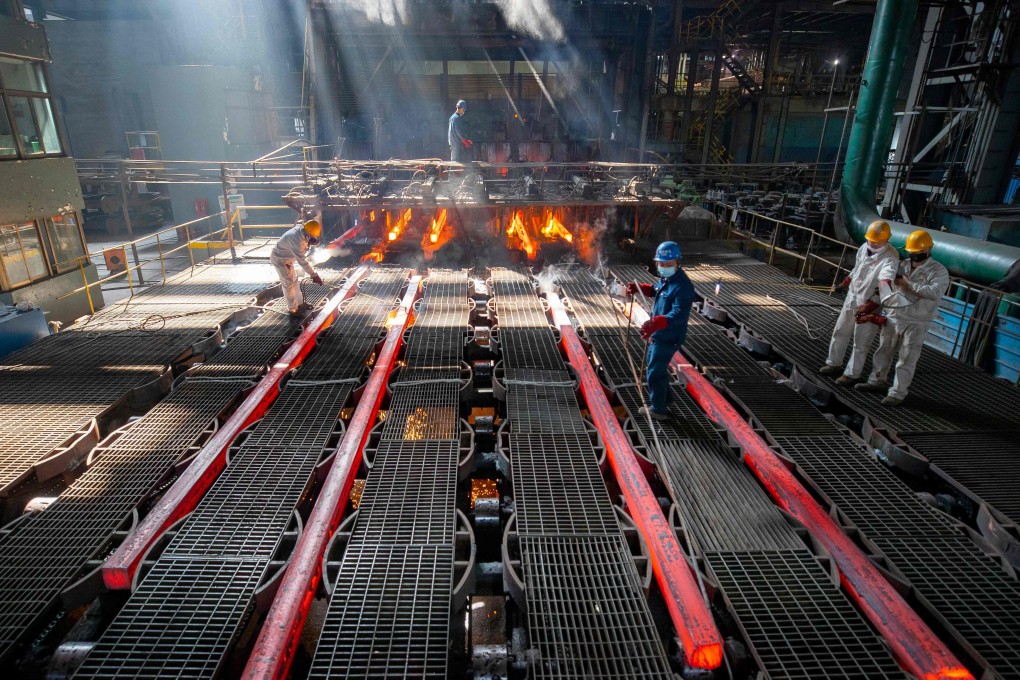China’s top steelmakers see strong demand in 2021, but slow shift to carbon neutrality
- Chinese steel producers remain bullish about domestic demand this year, but have expressed concern about high iron ore prices
- The transition to greener methods of production is likely to take a back seat to consolidation of steel mills, steel producers say

Demand for steel in China will remain buoyant this year amid a steady pipeline of infrastructure projects, while long-term plans to curb production to meet carbon emissions targets are expected to proceed slowly, Chinese steel producers say.
Ahead of the National People’s Congress in Beijing on Friday, congress deputies and heads of some of the biggest steel mills in China, including Hunan Valin Iron and Steel Group and Xinyu Iron & Steel, said a decline in output to curb pollution was unlikely to kick in quickly, according to an interview with the state-backed China Economic Times.

03:26
Two sessions: How China's environmental policies are giving a boost to green industries
The high prices saw the Chinese steel industry call a meeting with Anglo-Australian iron ore miners Rio Tinto and BHP late last year.